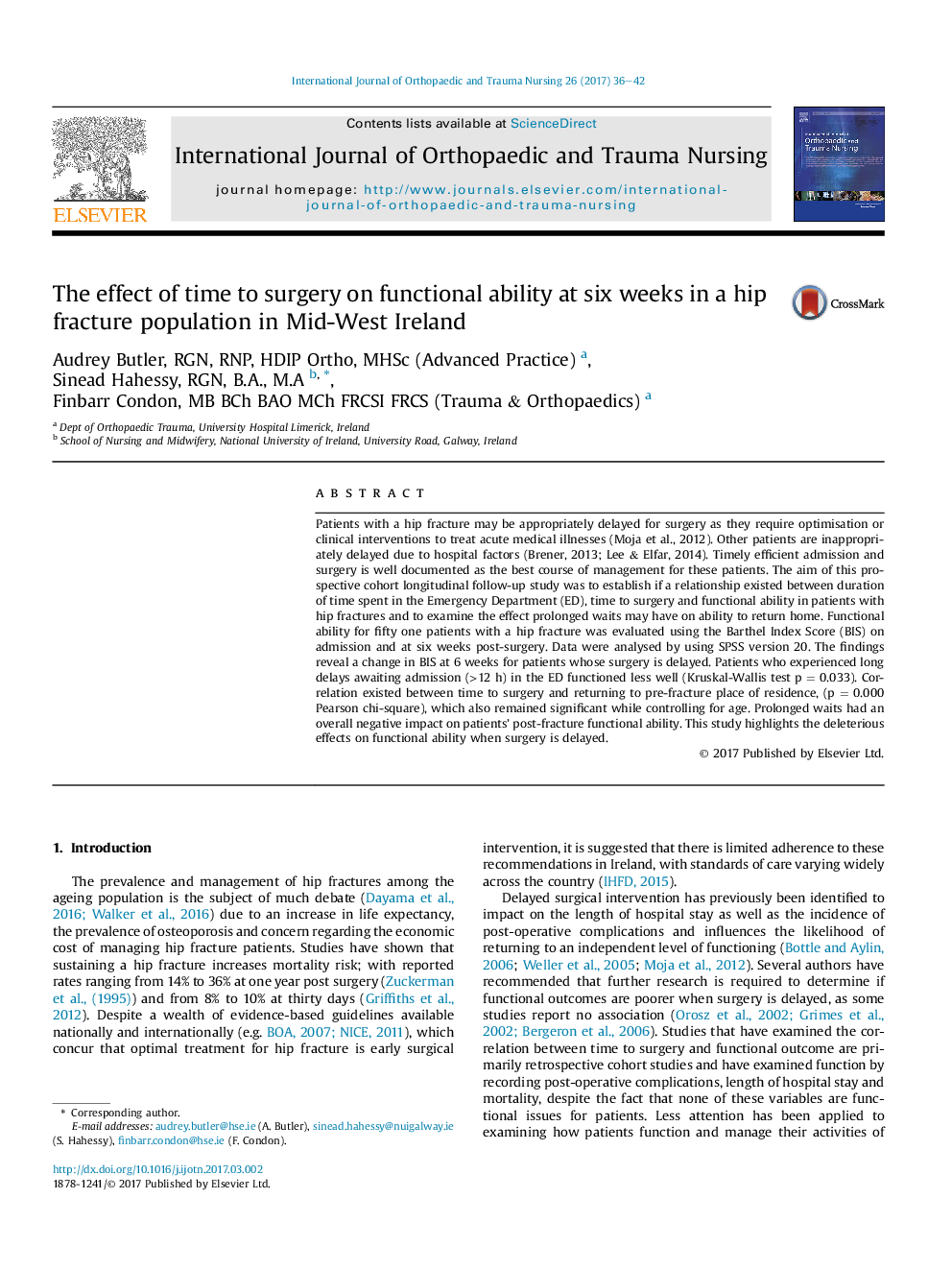| Article ID | Journal | Published Year | Pages | File Type |
|---|---|---|---|---|
| 5568430 | International Journal of Orthopaedic and Trauma Nursing | 2017 | 7 Pages |
Patients with a hip fracture may be appropriately delayed for surgery as they require optimisation or clinical interventions to treat acute medical illnesses (Moja et al., 2012). Other patients are inappropriately delayed due to hospital factors (Brener, 2013; Lee & Elfar, 2014). Timely efficient admission and surgery is well documented as the best course of management for these patients. The aim of this prospective cohort longitudinal follow-up study was to establish if a relationship existed between duration of time spent in the Emergency Department (ED), time to surgery and functional ability in patients with hip fractures and to examine the effect prolonged waits may have on ability to return home. Functional ability for fifty one patients with a hip fracture was evaluated using the Barthel Index Score (BIS) on admission and at six weeks post-surgery. Data were analysed by using SPSS version 20. The findings reveal a change in BIS at 6 weeks for patients whose surgery is delayed. Patients who experienced long delays awaiting admission (>12 h) in the ED functioned less well (Kruskal-Wallis test p = 0.033). Correlation existed between time to surgery and returning to pre-fracture place of residence, (p = 0.000 Pearson chi-square), which also remained significant while controlling for age. Prolonged waits had an overall negative impact on patients' post-fracture functional ability. This study highlights the deleterious effects on functional ability when surgery is delayed.
